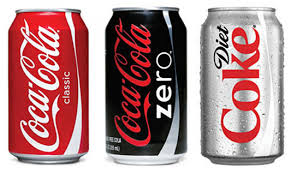Providing a quality service
All service providers and retailers hang their hats on the claim they provide quality service or products, but what are some of the guidelines and checklists to help the consumer and provider alike, ascertain whether they can stand by their own quality claims.
So what are some checklists or pointers to use as a guide to determine whether you are providing quality service to your clients ?
Consider your price point, does it reflect the quality ?
The logical sure sign of a satisfied customer is return business, however that does not ensure that the service or product is of high quality, merely that the price point and convenience may have suited the consumer more.
Many people are happy to pay less, in the full knowledge that what they are getting is a lower quality service, as there is nothing more annoying than paying good money for a substandard product or service,and for some the top shelf item is beyond their financial means.
Many businesses make the mistake of trying to be too cheap in the hope that volume of sales will increase, whilst i can work out that way for some, for others it can cheapen the brand, effect business sustainability and viability and your overall overall image.
The old adage that ‘you get what you pay for’ generally rings true, for those who may not have been prepared to invest more effort or resources to get a better service. Sometimes buying the cheaper product can work out more expensive in the long run, due to more frequent replacements, repairs and ultimately in time you may end up purchasing the more expensive brand in sheer frustration anyway.
To use a food analogy, you need to decide is your business a drive thru model or fine dining. If you were to list the top 10 restaurants in the world, you wouldn’t find a fast food place on that list. However if you were to list the top 10 most frequented restaurants in the world, the list would be turned upside down.
Not surprisingly, the countries with the highest rates of health issues and obesity are generally those with the most fast food chain outlets.
Number of customers is NOT a reflection on quality.
People drive a Holden while they dream of driving a Ferrari – it never happens the other way round.
I recently flew first class to Europe with emirates, who are considered to have the best first class in the world, but due to code sharing one sector was British Airways first class – the difference was like night and day. Whilst both were great compared to my usual cramped seat in cattle class, Emirates went over and beyond with standards of decor, service, food and general customer service to make you feel you were the only, and most important, person on that flight.
Does the product/service live up to the claims ?
You see a lot of marketing spin where businesses make big claims relating to their products, guarantees of particular results or outcomes if the consumer buys this product.
The key thing to consider here is whether the product or service actually backs up those claims, and what is the nature of the guarantee.
For example ‘proven to be effective in 40% of cases’ also means proven to be ineffective in 60% (the majority). Terms like ‘most’, ‘many’, ‘clients say’, ‘up to x%’ etc are all ambiguous and vague and whilst true are deliberately misleading.
If backing your product with ‘studies prove’ or ‘research shows’….then be prepared to reference the actual research or study that was carried out so that consumers can assess its validity, authenticity and relevance.
There is nothing more dissatisfying to a customer than feeling they did not get what they paid for, or a product did not live up to its claims, there is no surer way to lost that client forever, potentially every person they choose to tell.
On client gave the example of going to a high profiled hair replacement clinic that advertised guaranteed results in 97% of clients, after many months of treatment and many thousands of dollars, for zero results, they were told ‘you must be in the 3%’, then promptly offered an ‘advanced product’ guaranteed to work for 5 times the original price. Perhaps this advanced treatment might have been offered first ?
I noted a recent flyer up on a gym wall from an 19 year old Personal Training course graduate which listed their experience and qualifications as a 2 month fast track course at another institution, and no other significant sporting or academic achievements or experience.
However, when they listed their services, they claimed ‘expert advice’ and ‘guaranteed results in the following areas : weight loss, muscle gain, improved fitness, increased confidence, improved body image, increased elf esteem, increased strength, lower body fat, improved balance, improved co-ordination, bodybuilding, fitness figure, sports specific and functional training.
I could not help but think my 30 years in the industry was wasted and I too should have just done one of these crash courses.
Make sure your claims are reflective of your actual skills, knowledge, qualifications and capacity to provide those outcomes.
Are there support mechanisms in place to ensure client gets the best value from the product / service ?
This may be something simple like demonstrating the use of a product, or a set of instructions on how something should be assembled. In this day an age consider embracing technology with online demonstration/instructional links and support material.
Also, what support is in place if the client has difficulty, do you offer follow up service, technical support, replacement of faulty goods (at no cost), a fair and reasonable refund policy.
One client reported purchasing some cosmetics which came with a common 30 day trial, and if not satisfied, the product could be returned without incurring the ongoing monthly commitment and further products. When attempting to return the items the were told they can only be sent back in an unused unopened condition ? So one would wonder how the consumer could possibly make a decision on the satisfaction of the product without actually opening it ?
Is the client likely to recommend your product / service to others ?
The ultimate form of flattery is not only ongoing business from a satisfied customer, but having them act as ambassadors for your brand by telling their friends and peers about their satisfaction with your service.
It is only then that you see your business grow exponentially, as one happy client can bring you many more.
Of course there are things you can do to encourage this process such as refer a friend incentives, discounts for loyalty and ways to acknowledge valued clients that are supportive of your business.
One client reported that their AFL football team of choice recognized loyalty by offering an invitation to lunch with the coach…..after 50 continuous years of membership !! Let’s hope they had soft and low GI foods on the menu that day.
Has your brand stood the test of time ?
The strongest brands are recognized for high quality service or products over a significant period of time, and survived challenging market conditions, fad and shifts in consumer trends. Often it is a result of clever re branding or reinvention, and even improvement in their products to meet the changing times.
A classic example is Coca-Cola, regardless of nutritional content and stigma, the brand is as strong today as it was shortly after it began in 1886.
So the keys to quality service are obviously to be able to substantiate your claims, provide the client with value for money, offer support for optimal use and be able to rectify any issues in a fair manner. It is always better to under-promise and over-deliver.
CEO, Global Fitness Institute

